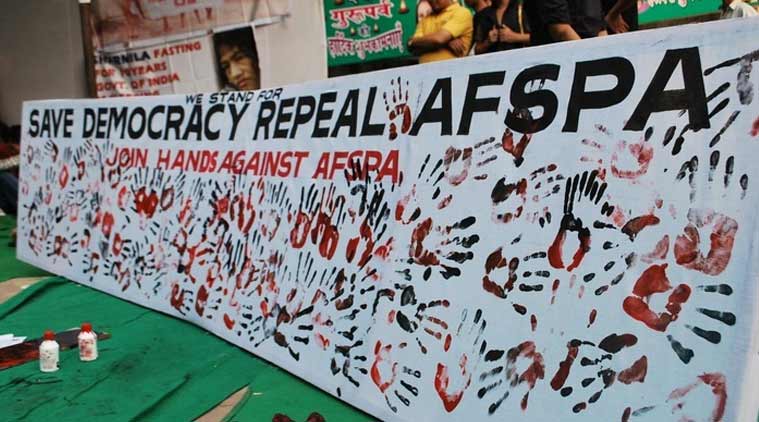 The present committee submitted an interim report in 2014 and recently submitted its final report to the Ministry of Women and Child Development.A high-level committee, constituted by the government to study the status of women to evolve policy interventions, wants the Armed Forces Special Powers Act (AFSPA) repealed, gay sex decriminalised and at least 50 per cent reservation for women at all levels of legislature, right up to Parliament.
The present committee submitted an interim report in 2014 and recently submitted its final report to the Ministry of Women and Child Development.A high-level committee, constituted by the government to study the status of women to evolve policy interventions, wants the Armed Forces Special Powers Act (AFSPA) repealed, gay sex decriminalised and at least 50 per cent reservation for women at all levels of legislature, right up to Parliament.
The High Level Committee on Status of Women was set up by the UPA government in 2013 to do a comprehensive study on the status of women since 1989, and to evolve appropriate policy interventions based on a contemporary assessment of economic, legal, political, education, health and socio-cultural needs of women. The first such committee was set up 42 years ago in 1971 on the request of the United Nations.
The present committee submitted an interim report in 2014 and recently submitted its final report to the Ministry of Women and Child Development.
In the section dealing with violence against women, the committee headed by Pam Rajput, called for several legislative interventions.
Describing AFSPA as an instrument that gives unbridled power to security forces in areas where the Act is imposed, the panel called for repealing it and also recommended that efforts to criminalise same sex relationships should be eliminated.
The report emphasises the need to devise mechanisms for dealing with cases of extra judicial killings and arbitrary detention of women by state officials and security forces.
Calling for 50 per cent reservation of seats for women in the local bodies, state legislative assemblies, Parliament, cabinet and all decision-making bodies of the government, the committee noted: “Gender parity in governance and political participation is a pre-requisite to the realisation of gender equality. A 33 per cent reservation for women is ensured through Constitutional amendments. In some States it is 50 per cent. However, there is nothing like ‘natural transition’ from the Panchayats to the State Assemblies and the Parliament, where the representation of women continues to be dismal.”
The committee in its report also called “India’s missing girls”, the problem of skewed sex ratio due to cultural preferences for sons, a “national shame”.
While proposing a gender score card for all those in public life, it also recommended that all elected representatives — MPs, MLAs and members of Panchayati Raj Institutions and Urban Local Bodies — should be accountable for the sex ratio in their respective constituency, district and village, inviting rewards and recognition for progress, and prosecution for negligence, inaction, and complicity.
It cited the example of Haryana and Himachal Pradesh governments that recently announced incentives for villages with improved sex ratio.
In the section on marriage and divorce laws, the report — while calling for amending the Section 497 of the Indian Penal Code, 1860 relating to adultery — noted: “Women are not possessions of their
- See more at: http://indianexpress.com/article/india/india-others/committee-on-women-wants-afspa-repealed/#sthash.TOLHm1SY.dpuf
Leave a Reply